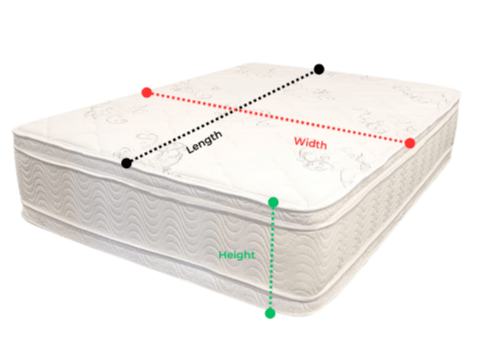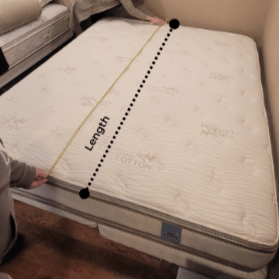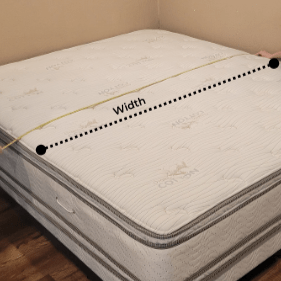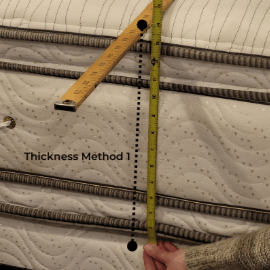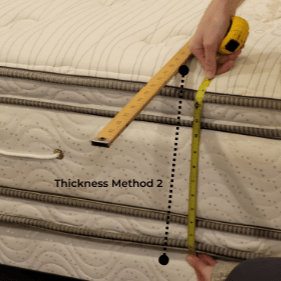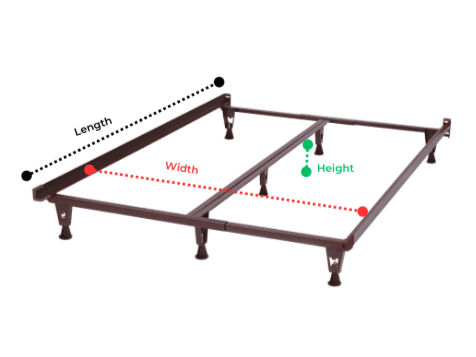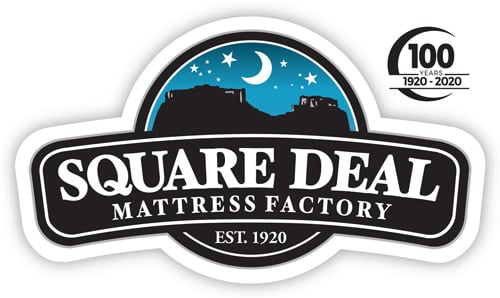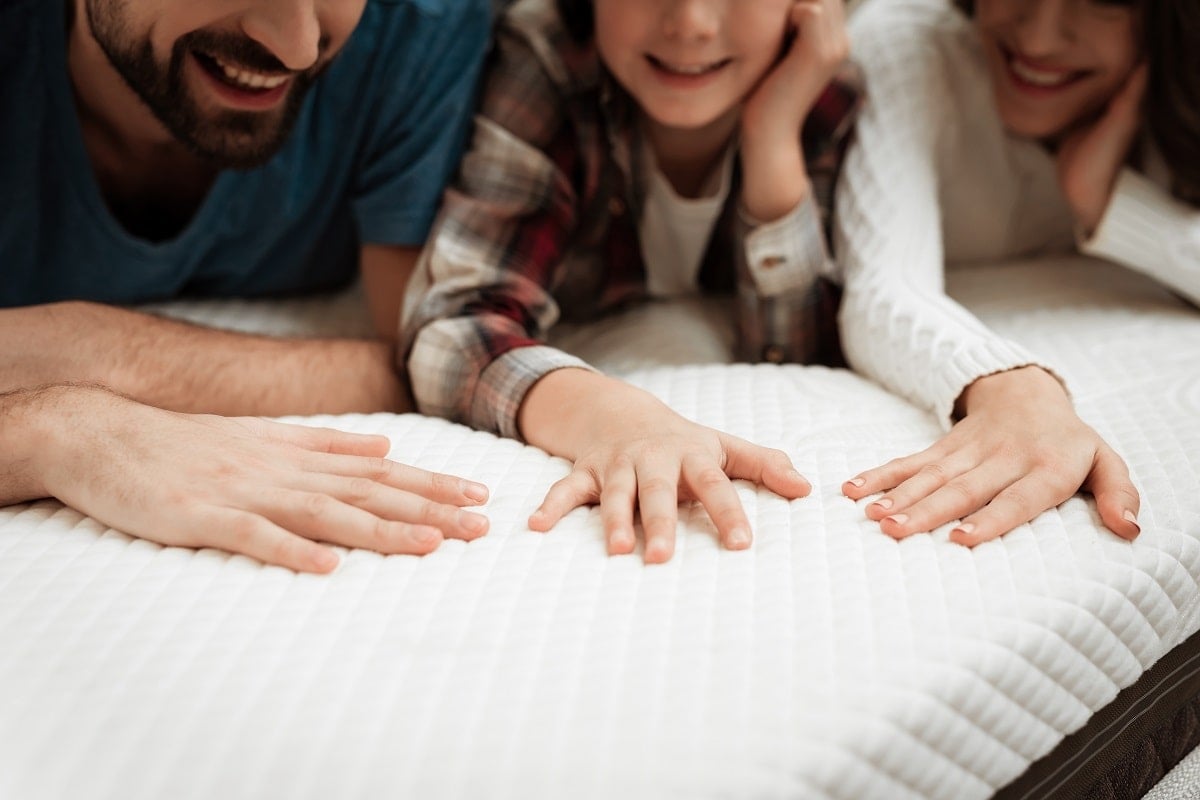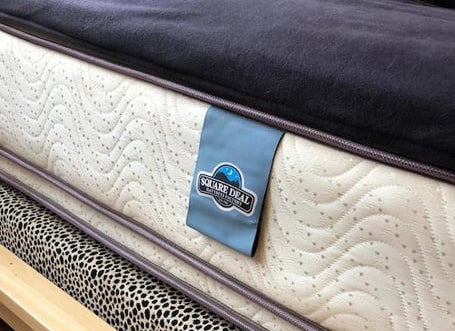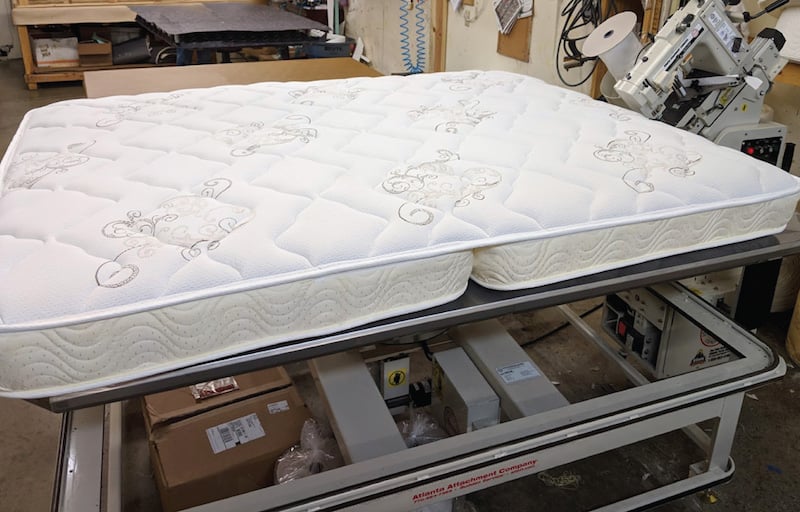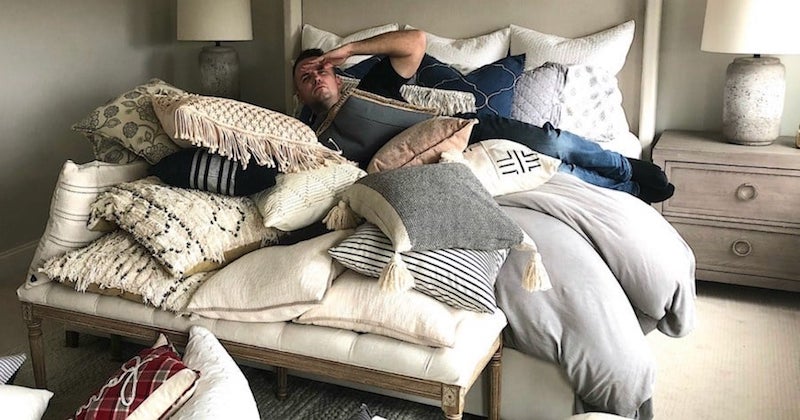When investing in a new mattress, knowing what size to order is a simple but critical decision. Even if you are fairly sure about your mattress size, measuring it before you begin shopping will add confidence to your decision. If you are preparing to order a custom-size mattress for a specialized application, knowing how to accurately measure your mattress or future mattress foundation will ensure you achieve the most accurate fit possible. This guide includes clear instruction on how to measure like a pro, along with diagrams and photo examples.
Traditional Mattress Sizes
If you are ordering a mattress for your home, it is helpful to know the standard measurements available in most mattress retailers. If your measurements are not within a 1.5 inch tolerance of these traditional sizes, you may need to order a custom size. Please see our Mattress Custom Services page for a list of commonly ordered custom sizes and more details. The traditional mattress sizes are as follows:
Twin/Single: 38” x 74” Twin XL: 38” x 80” Full/Double: 53” x 74” Queen: 60” x 80” Eastern King: 76” x 80” California King: 72” x 84”.
Measuring
